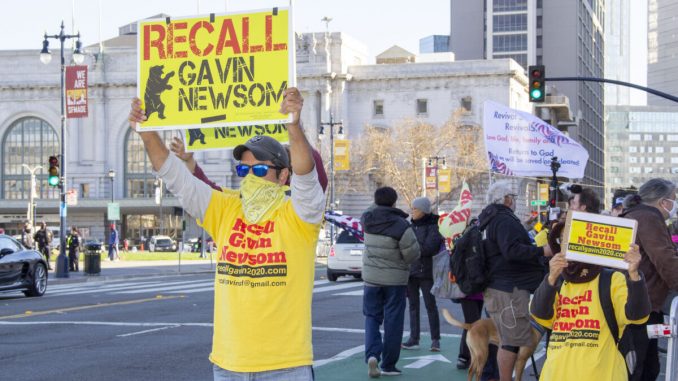
Convicted murderers facing parole instead of life in prison, a rise in homeless encampments bringing danger to local residents, and failed public school policies: these are just a few reasons some Californians say they want to recall their elected officials.
Since the campaign to recall Gov. Gavin Newsom successfully gathered enough verified signatures to qualify for a recall election, local campaigns statewide have been picking up steam as more and more residents become fed up with the way they’re being treated by public officials.
“It’s a lot of work, but if you have the money, you probably are going to succeed at getting the signatures,” Joshua Spivak, a senior fellow at the Hugh L. Carey Institute for Government Reform, told The Epoch Times.
A total of 17 California recall campaigns have already launched this year. And while some point to the success of the Recall Newsom campaign as newfound encouragement for their own local efforts, it’s not the only reason.
Failed criminal reform policies are prompting recall efforts of the district attorneys of both Los Angeles and San Francisco, while a councilman in Los Angeles is facing scrutiny for his handling of the homelessness crisis. Organizers are building upon the successful grassroots efforts of the Newsom recall campaign as inspiration that their efforts too might succeed.
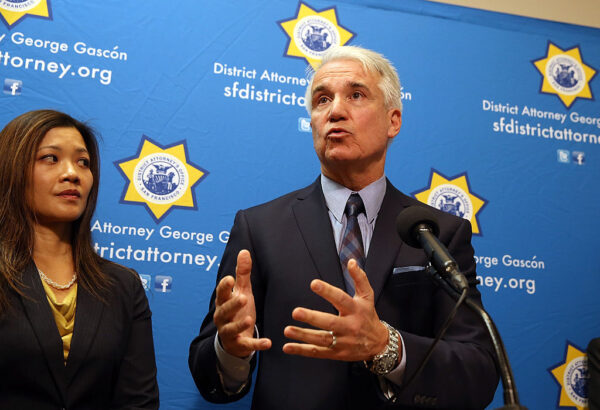
No Second Chances
Desiree Andrade became co-organizer of the campaign to recall Los Angeles District Attorney George Gascón after her son’s killers had their sentences reduced.
“Before Gascón took office, these gentlemen were facing life without parole and possibly the death penalty,” Andrade told The Epoch Times.
But she says that’s no longer true. The case was pending when Gascón was elected last year and he ordered his prosecutors not to seek special enhancements under any circumstances—significantly reducing potential sentences—as part of his reform efforts.
Andrade’s 20-year-old son Julian was viciously murdered in Azusa in 2018, when five convicted suspects thought he stole their marijuana. The suspects repeatedly beat and stabbed Julian in his home until he was unconscious, then drove him up a mountain road before throwing his body off a cliff. When they heard him still struggling below, they attacked him again, according to prosecutors.
The suspects were eventually charged with murder, residential robbery, and kidnapping by then-District Attorney Jackie Lacey. The charges also included an alleged special enhancement of “lying in wait.”
Andrade said Gascón campaigned on second chances—but his policies don’t protect the victims of brutal crimes, like her son. The initial ruling has “drastically changed,” she said, with the five suspects now facing reduced sentences of 20 years under Gascón’s new statutes.
“I believe that second chances are for … little things, not a murder,” she said. “A murderer does not deserve a second chance. You took somebody’s life. That’s huge, you know. We’re not selling a lollipop here.”
Andrade attended the court hearing when the enhanced charges were dismissed. She told Fox 11 at the time that she saw the defendants “smirking from ear to ear” when they learned they’d have reduced sentences.
Prior to the recall effort, many of Gascón’s reforms faced heavy criticisms. He announced he would seek to get rid of the death penalty, no longer prosecute children as adults, block three-strike charges, and significantly downsize and rename L.A.’s hardcore gang unit.
In March, Gascón responded to the recall effort against him, saying on Twitter that the attempt is “fueled by conservative media, law enforcement unions & other ‘tough-on-crime’ types.”
But Andrade, who is a registered Democrat, disagrees.
“I disagree with the way he thinks, and so it’s not a partisan issue here,” she said. “It’s not about, you know, being a Republican, Democrat, Independent, whatever you want to be; that has nothing to do with this. This is about what’s right and what’s wrong.
“It’s unfortunate that conservative media is the only one that reaches out and cares about us victims. You don’t have any Democratic news media reaching out to us.”
Andrade said the effort will need 590,000 signatures to meet the required threshold to trigger a recall election but will aim for twice that number to account for unverified signatures. They’ll have 180 days from the start of the petition to collect them.
“As you can see with Gascón, they’ll need an enormous amount of signatures, and they could be able to get it,” said Spivak. The greater challenge, he said, is winning.
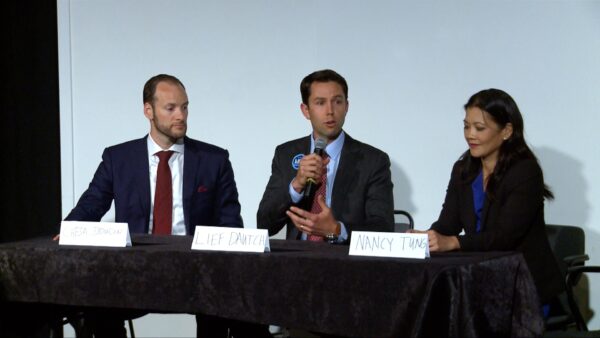
Recall Chesa Boudin
From 2011 to 2019, Gascón was the district attorney in San Francisco—where his successor, Chesa Boudin, is also facing a recall campaign.
Richie Greenberg, organizer of Recall Chesa Boudin, told The Epoch Times that Boudin has simply followed Gascón’s lead. “He set the tone for Chesa to then come in and continue this completely upside-down dismantling of the criminal justice system,” Greenberg said.
Greenberg estimates that the recall effort has collected more than 12,000 signatures since it began in March. He said they’ll need to gather roughly 51,000 signatures by Aug. 11 to qualify for a recall election, but are aiming for a 20 percent cushion to compensate for those that might not be verified.
Greenberg identifies as a moderate Republican, but he said the campaign is mainly a “Democrat-led” effort, based on “spot random audits” of the recall petitions.
“We’ll pull out like 25 or 50 out of the thousands that have come in, and then we go and we have access to the voter database. And we see that we’re getting 50 [to] 70 percent of people who are signing the petition are registered Democrats,” Greenberg said. “So this is not a Republican or conservative signed petition.”
According to Boudin, however, it’s “a Republican-led recall effort.” He told a local news station in a statement that “the same people who opposed my election, and the reforms that came with it, are now trying to undo the will of the voters.”
“I’m staying focused on what I promised to do: serving my community, building a more fair and equitable justice system, and fighting for the safety of all who live here,” he said.
Boudin has implemented progressive reform policies prohibiting cash bail, decreasing prison populations, and accentuating rehabilitation over incarceration.
His approach to criminal justice has come under heat from constituents and victims of violent crimes. They cite the recent case of a man who was arrested twice for felony domestic violence. The suspect was released without charges, before allegedly killing a 7-month-old baby.
That suspect wasn’t the only one to get off without charges, they say. From October to December last year, the San Francisco Police Department made 131 arrests for felony domestic violence; Boudin dismissed 113 of them, they say.
Greenberg sarcastically called Boudin “an excellent defense attorney.”
“He doesn’t know how to hold a criminal—someone being accused of crimes—accountable,” Greenberg said.
San Francisco is seeing a spike in violent crime and property theft, he said, because the DA is “greenlighting criminals” to come into the city and “do virtually whatever they want,” knowing “they’re not going to be prosecuted.”
However, the San Francisco Police Department’s crime data indicates otherwise. From Jan. 1 to April 25, a comparison between 2020 and 2021 shows that rape, robbery, assault, and larceny theft have decreased, while burglary, car theft, and arson have gone up.
Julia Edwards, a spokesperson for San Franciscans Against the Recall of Chesa Boudin, told The Epoch Times that “a small group of wealthy individuals are trying to overturn the choices voters made just 18 months ago.”
“These endless recalls will keep us all in a state of constant campaigns and distract from the important issues facing San Francisco,” she said via text. “Our committee is working to combat the lies and disinformation of the recall proponents who are trying to prevent our elected officials from doing their jobs.”
Greenberg says his campaign has provided the blueprint for other efforts in the area, including several San Francisco School Board members who are facing recall efforts fueled by parental outrage over the handling of their children’s education during the pandemic.
“My recall effort became a template for the school board recall because it uses the same format,” he said, pointing to the various methods his campaign uses to gather signatures, like robocalling and sending mail-in petitions to registered voters.
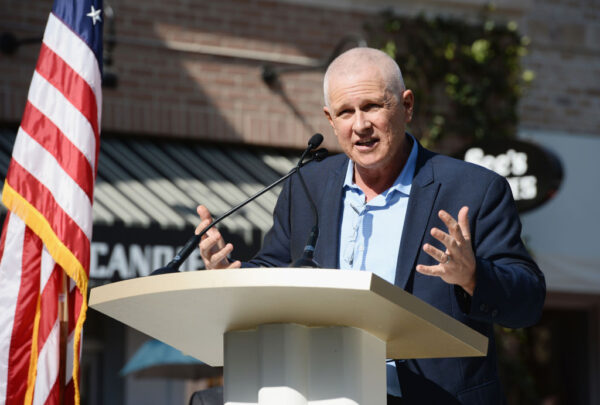
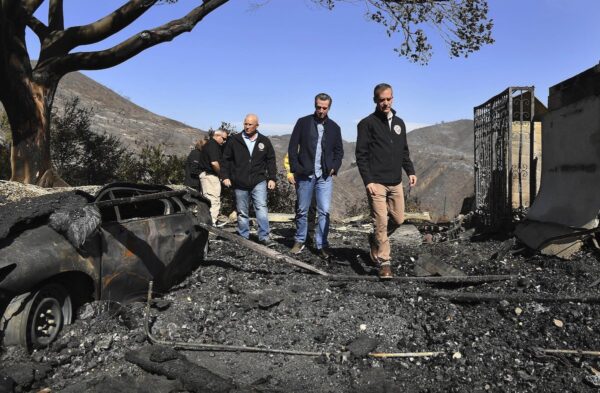
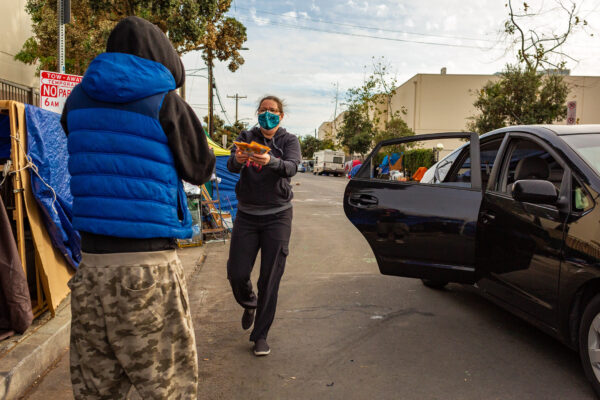
‘Broken Promises’
In Los Angeles, Councilman Mike Bonin is also facing a recall effort, led by fed-up residents who say his homeless policies have brought crime and filth to their neighborhoods. Bonin, who took office in 2013, is under fire for the way he’s handled the homelessness crisis in the city’s 11th district, which includes Pacific Palisades, Marina Del Rey, Brentwood, Westchester, Venice Beach, and Hollywood.
Heidi Roberts, co-organizer of the Recall Mike Bonin effort, told The Epoch Times that the recall campaign is the result of a “seven-year track record of broken promises.”
“His broken promises and inaction on this huge humanitarian crisis which is homelessness has impacted the lives of everybody in the district, whether they’re living in a house or living on the streets,” Roberts said.
Bonin has faced failed recall attempts before—but this year, organizers are confident they’ll be able to gather enough signatures to hold a recall election, based on circulating Change.org petitions garnering over 40,000 signees.
Responding to a previous recall effort in 2017, Bonin said he was “confident the vast majority of my constituents approve of what we have done together.”
“My job is to represent their interests and values, and not be distracted by right-wing radio hosts, or by my former opponents and their supporters, who have been calling since election night for a recall that would cost the taxpayers of Los Angeles millions of dollars,” he said.
But Roberts said the councilman’s “containment zone” policies have brought a homelessness problem to the district that’s spreading.
“It started with Venice. … Now it’s seeping out to the rest of the district, and it’s the second-largest [homeless community], second only to Skid Row,” she said. “And it’s deep in residential neighborhoods—I mean, our elementary schools have encampments surrounding them.”
Residents have repeatedly reported problems with the homeless, including the threat of crime, fire, and public health issues. They cite a recent arson attack by a homeless person—who allegedly set a doctor’s house on fire in Venice Beach, which left her dog dead—as the latest in a long string of offenses committed by the homeless in their neighborhoods.
Roberts said many residents “are just fed up,” and called the recall campaign “the only tool that we have in our war chest at this point to stop the decimation of our community.”
The grassroots volunteer effort has not filed with the Department of Elections yet. But Roberts said she expected the paperwork to be filed within the next three months, after details are worked out with attorneys.
“It’s so different from the recall Newsom campaign, because it’s not a partisan effort and it has nothing to do with Mike Bonin’s politics,” she said.
According to Roberts and co-organizer Alan Resnik, the problem lies primarily in the councilman’s handling of the homeless. In Venice Beach specifically, Bonin has drawn scrutiny from community groups who say the bridge housing facilities there, which he supported, only attract more homelessness, drugs, and trash.
“People are dying on the streets,” Resnik told The Epoch Times. He said a different approach is needed to solve the problem and “help people on a large scale.”
Once they file, Roberts and Resnik will have 120 days to gather nearly 30,000 signatures to trigger a recall election.
“We do have a plan,” they said.
An Expert’s View
Spivak has researched nationwide recalls for 25 years, and runs a recall elections blog where he’s been documenting recall attempts and elections over the last decade. Gathering enough signatures to trigger a recall election isn’t easy, he said, but can be accomplished—given the proper time.
“Part of the reason they got the Newsom recall on the ballot, it’s actually because they got an extra 120 days. That was a big, big reason for the recall succeeding in terms of signatures,” he said.
The Recall Newsom campaign was granted an extension to collect signatures after the group cited COVID-19 restrictions as a deterrent to its goal.
According to the secretary of state’s website, there have been 179 recall attempts of elected officials in California since 1913. Of those, 10 attempts qualified for the ballot, and only six elected officials were recalled.
Recall elections have been around for hundreds of years, Spivak said, so it’s not unusual to see multiple campaigns pop up at the local level. Residents being cooped up in their homes during the pandemic may have contributed to more political involvement and a national spotlight on the campaigns, he added.
“It definitely had an impact; the question is, is that really why any of these would succeed?” he asked. “It’s not clear.”
Spivak said Newsom’s handling of pandemic restrictions may have been the primary issue for this recall effort, but there had been several attempts to recall him previously, “so this isn’t the first time.”
When looking at data across the entire country, Spivak said recall attempts are relatively successful—and if they get on the ballot, there is a good chance of success.
“I found about 60 percent of them result in a removal, and about 6 percent also results in a resignation before the recall vote,” he said.
The number of petition signatures required to trigger a recall election, and the method of replacing an official if they are voted out of office, vary by position. To recall the governor in California, petitioners needed 12 percent of the number of votes cast in the previous gubernatorial election to sign. Then each of the state’s registrar offices must verify the signatures in their respective counties.
“California’s governor has a much lower recall requirement than these other positions. The governor needs only 12 percent of turnout, whereas other positions need higher,” Spivak said.
He said Newsom’s recall was “mainly a partisan effort.”
“You need 1.5 million signatures to get the recall on the ballot in 2020. Donald Trump received over 6 million votes [in California], so if you would just get a third of those people who voted for Donald Trump to sign, you’re in good shape,” he said.
The next phase of the governor’s recall attempt is currently underway: Voters have until June 8 to contact their registrar if they want to retract their signatures from the petition. There would need to be roughly 200,000 signatures removed for the recall election to be invalidated.
Spivak said he’s not sure whether the recall movement will ultimately succeed in replacing Newsom. “There’s certainly reason for Newsom to feel optimistic, based on how the state has been trending.”
According to a recent survey of just over 1,700 adult residents by the Public Policy Institute of California, just over half say they approve of how Newsom is handling his job, while 40 percent reported they would vote to remove the governor in a recall election. The study also noted Republicans were more likely than Independents and Democrats to vote to remove him.
Mike Netter, co-founder of the Recall Gavin 2020 campaign, told The Epoch Times last month that their campaign has spurred other grassroots recall efforts because “the public in California is dissatisfied.”
“It’s not like recalls are popping up all over the place because Recall Gavin [2020] is successful,” said Netter. “It certainly has something to do with it, obviously, but the reality is the people are starting to say … ‘You know what? Once you’re in office, you’re not doing what you said you would do. We’re tired of living this way. We can’t take it anymore.’”
He added that with a Newsom recall election on the horizon, the political responsibilities will shift to the California legislature, including the 30-day withdrawal period and the allocation of funds to hold the election. According to former state Sen. Don Perata, chair of Stop the Steal, California, the special election could cost $75 million to $100 million.
Netter said the state will have to come up with the money. When all is said and done, he expects the recall election to be held in the fall.
“They will try to push it until November,” Netter predicted.
Neither Gascón, Boudin, nor Bonin responded to requests for comment by The Epoch Times prior to publication.


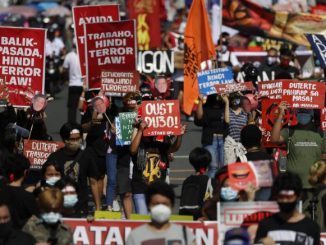
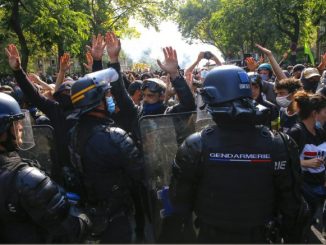
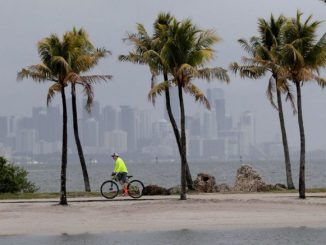
Be the first to comment